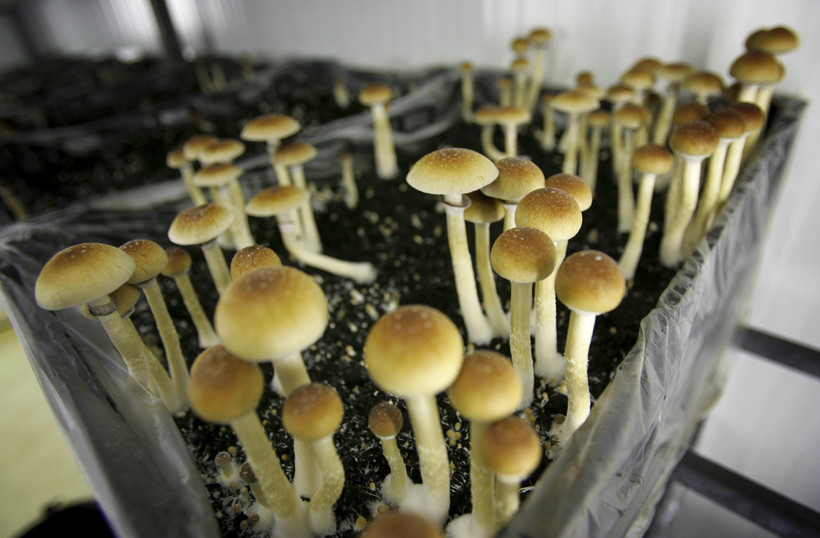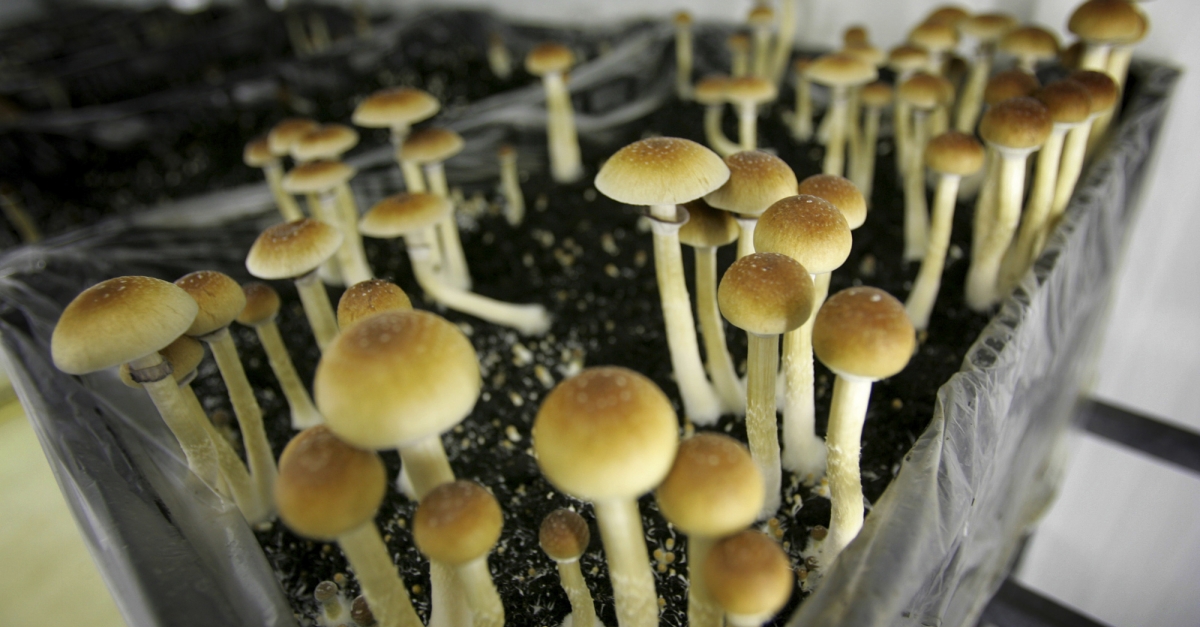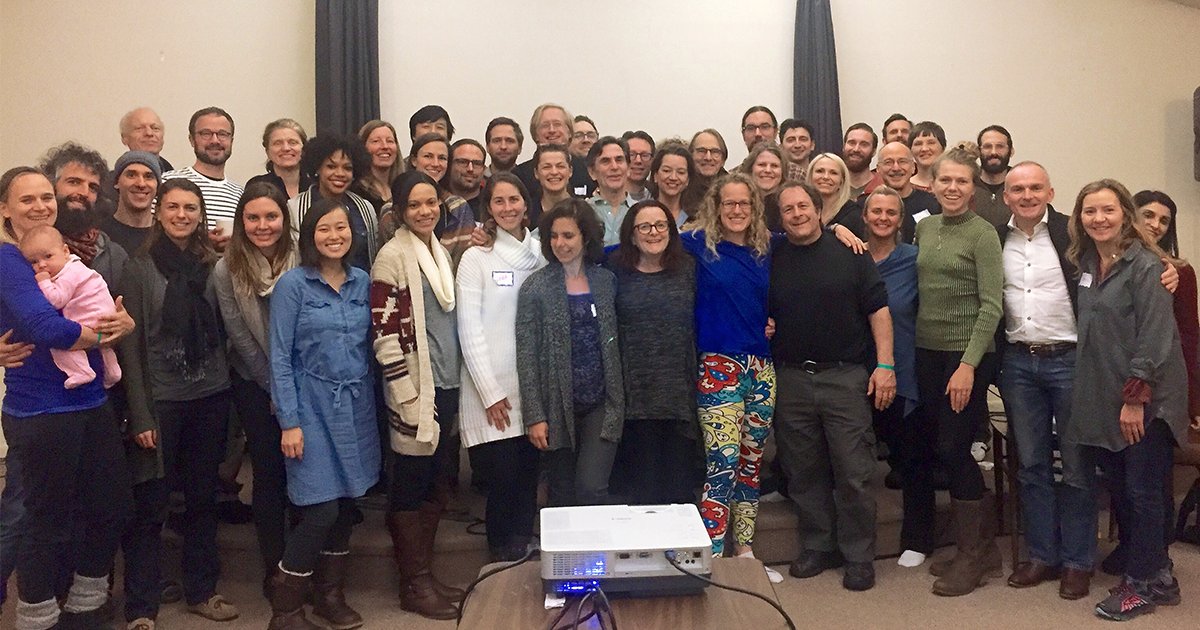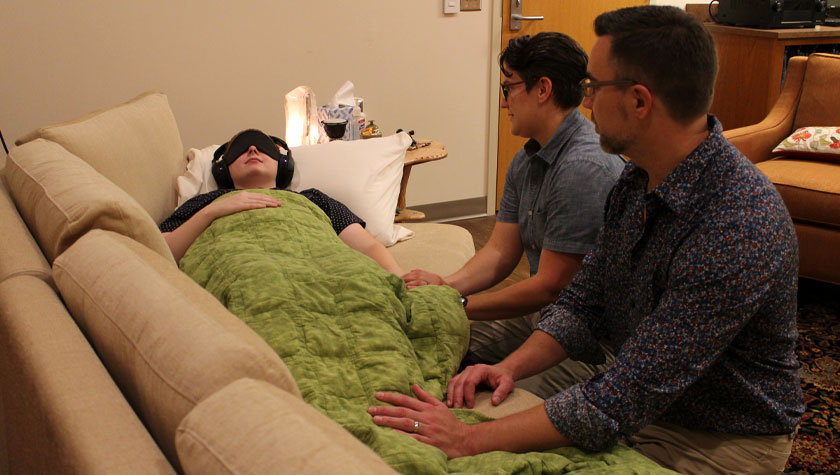As states such as Oregon and Colorado pass
measures to decriminalize psychedelic therapies and more than fifty publicly traded companies
develop these treatments, the demand for therapists trained to work with psychedelics continues to grow.
MAPS Public Benefit Corporation founder Rick Doblin said in a 2021
interview with
Numinus that if approved by the FDA, treating the anticipated one million people in the first ten years of MDMA-assisted therapy alone would require more than 35,000 trained therapists. Approval for legal psilocybin therapies could spark the need for an additional 15,000 trained therapists in the following year. While these projections reflect only MAPS’ perspectives, this vision offers a glimpse of the need for qualified therapists.
The approaches and methods of training therapists for psychedelic-assisted therapies are as varied as those seeking out psychedelic experiences. Some developers of psychedelic therapies focus on new compounds, while others prioritize psychotherapy techniques and integration methods. Many will need specialized therapists, creating an expansion of psychedelic therapy training programs for licensed providers and lay practitioners.
Dozens of training programs are now offered to educate psychedelic facilitators. From heavily credentialed scholars with limited psychedelic experience, to experienced clergy and underground guides with no university affiliations, psychedelic training programs are designed to fulfill very different approaches to care and wellness.
As addiction expert Dr. Gabor Maté noted in a recent
webinar hosted by the ibogaine-focused treatment company
Beōnd, behavioral health approaches only treat mental health symptoms, which Maté called a “shallow approach” to addiction treatment. Acknowledging the power of psychedelics to enable new neural networks, Maté points to the personal and intergenerational traumas behind addictive behavior patterns and asks, “how can a treatment program address the real issue, not just the presenting issue?”
The FDA and other organizations regulating emerging psychedelic-assisted therapies will determine appropriate qualifications for some treatment programs, coaching, and integration services. Regulation will also be influenced by the stakeholders, therapists, and clients who are shaping the future of psychedelic healthcare.
While there are too many training programs to offer a comprehensive list, some key organizations and approaches are shaping the future of psychedelic wellness and healthcare through their training of facilitators.
Training therapists for clinical trials
Some of the most prominent training programs for those providing psychedelic-assisted therapies are psychotherapy-based and developed by companies creating protocols specific to patentable drug compounds. These programs emerged to fulfill a need within the cycle of drug development and complete Phase 3 FDA trials conducted in clinical environments.
COMPASS Pathways offers a core-training with over 10 hours of self-paced online learning and five days of facilitated instruction.
Cybin, a drug development company that is also testing synthetic psilocybin and related analogs, launched its therapist training program in 2022. The 70-hour training in Cybin’s psychedelic therapy model, called
EMBARK, is offered at no cost to facilitators and is designed to create a pool of potential therapists who might be contracted for future clinical trials.
The EMBARK approach is a transdiagnostic treatment model that the company says is applicable beyond the psychedelic therapy settings. Developed under the direction of researchers Alex Belser and Bill Brennan, this psychedelic-assisted therapy training model has already been
adapted for non-psychedelic care, specifically among frontline health workers facing Covid burnout.
In anticipation of the FDA approving MDMA-assisted psychotherapy for the treatment of PTSD, MAPS has partnered with universities that have a history of psychedelic inquiry and transpersonal psychology to train MDMA therapists for future treatment and research.
Beginning in 2016 with a partnership at the Center for Psychedelic Therapy & Research (CPTR) at the California Institute for Integral Studies (CIIS), students at CIIS can now work towards a
Psychedelic-Assisted Therapies Certificate. According to the CIIS 2022
Certificate Information Packet, this curriculum helps therapists complete roughly half of the training required to conduct MAPS MDMA-assisted psychotherapy after the FDA approves the treatment.
The CIIS Psychedelic-Assisted Therapies Certificate is an 8-month course that matriculates in cohorts of 150, with learning pods of 7-9 trainees serving as a “Home Group.” Mentors also provide students with professional development and publication support. The certificate is a 150-hour program of study that has so far certified 559 trainees.
According to Wendy Campbell, the CPTR enrollment coordinator, more than 300 students are training in the current cohort. CPTR reports in the Curriculum Guide that the program received a $1 million grant from the Steven & Alexandra Cohen Foundation this year that will support their expansion of a training site in Boston, facilitating the certification of an additional 1,125 psychedelic therapists over the next three years. While the online program is limited to licensed therapists, psychiatrists, and psychiatric nurses, the hybrid programs in Boston and San Francisco welcome commissioned clergy and chaplains for in-person courses.
MAPS PBC has also collaborated with Naropa University’s Extended Campus and the Center for Psychedelic Studies to develop their 200-hour
Psychedelic-Assisted Therapies Certificate program. Like the CIIS Certificate, Naropa welcomes chaplains and licensed mental-health professionals into their psychedelic training program.
While both schools are rooted in clinical psychology, integrative spirituality, and contemplative education, Naropa’s program focuses directly on social justice and ecopsychology. Participants choose from one of six altered experiences during the course, ranging from breathwork workshops and wilderness fasting to participating in offsite ketamine clinics or international psychedelic retreats in the Netherlands and Jamaica where some psychedelics are legal.
Training for the psychedelic experience
Maté remarks in the
webinar with
Beōnd that he believes ibogaine providers need to have personal experience with their medicines.
“Don’t assign anyone treatment until you’ve done it yourself. You have to be really trained in it; it’s not without potential harm… Do it yourself. Don’t prescribe until – at least, don’t administer,” said Maté.
This is a common emerging point of discussion as training programs navigate an ambiguous legal climate. Do facilitators and guides need to experience psychedelics before serving others? Should this be a required part of their training?
The Synthesis Institute, launched in 2021, takes the middle ground in their Psychedelic Practitioner Training. Based in the Netherlands, where legal psychedelic experiences are more easily integrated into the curriculum, applicants must have three prior psychedelic experiences or similar non-ordinary states of consciousness to apply.
When asked about the enrollment criteria, a Synthesis spokesperson remarked that the broad category of non-ordinary states was included to “support and encourage diversity amongst future psychedelic practitioners.” Citing the collective experiences of the facilitators who have supported over 800 people in legal, professionally guided retreats in the Netherlands, they noted that, “it is our opinion that the strongest candidates to facilitate others in psychedelic experiences are those who are experienced in navigating these altered states themselves.”
The Synthesis 18-month Psychedelic Practitioner Training emphasizes small group learning, connecting participants to learning “pods” of eight students, and facilitates a group psychedelic experience in the Netherlands for trainees. Open to therapists and non-licensed facilitators and practitioners, the Synthesis Institute Practitioner Training is unique in its 50-hour practicum requirement. Like CIIS, the Synthesis training program emphasizes networking with other graduates and mentors to maintain personal, and professional development.
The
Psychedelic Somatic Institute (PSI) also prioritizes first-hand experience, noting on their website that psychedelic treatment must be “experienced to be truly understood… knowing the process viscerally through your own personal experience develops depth, nuance, confidence and mastery with the work.”
From this view, PSI offers a range of trainings for licensed therapists and draws extensively from somatic and trauma-informed therapies to structure their
Psychedelic Somatic Interactional Psychotherapy (PSIP) model for both treatment and their training programs. PSI-trained therapists play an active and relational role during the psychedelic therapy session.
“We find that non-ordinary states of consciousness require a non-ordinary state psychotherapy to make best use of what these medicines have to offer,” reads the PSI website.
The PSI Apprentice Training Model enrolls small cohorts of 3-students, while the Group Training Model welcomes larger and varying class sizes. Both models present hybrid courses, include personal experiences with either cannabis or ketamine, and require periods of post-certification supervision. Following the observation of faculty sessions, PSI’s training programs also include a series of student-trade therapy sessions designed to support students’ integration of their psychedelic experiences.
Training to provide ibogaine therapy
First-hand experience with substances is viewed as especially relevant for training programs where heightened monitoring is necessary to maintain physical safety throughout the entirety of the experience, as is the case for ibogaine-assisted therapy.
Ibogaine is a psychoactive alkaloid derived from the
Tabernanthe iboga plant. Maté notes in the
Beōnd webinar that ibogaine is an effective compound in “obviating” or removing symptoms of opiate withdrawal, but it can also reveal undiagnosed heart conditions in participants. This is one reason why Beōnd trains its staff for continual monitoring at its residential treatment programs in Mexico.
“Of all the psychedelics, ibogaine is the toughest to go through,” says Maté. Despite decades of underground use and scholarly research involving ibogaine therapy, ibogaine-specific training programs are rare, relying primarily on apprenticeship networks with unregulated facilitators. Some
former patients like Juliana Mulligan say this approach avoids accountability for injury or malpractice. Advocates and ibogaine providers, like Mulligan’s colleague
Shea Prueger, seek to build more transparent and accountable training programs by first orienting current and future psychedelic therapists to the science and ethics of ibogaine-assisted therapy.
At
The Root Ibogaine Collective, providers Mulligan and Prueger have started a two-hour Intro to Ibogaine course that Prueger says,
“is meant for providers and treatment staff.” The group also offers online and in-person training for new clinics and works with established clinics where they “take a look at their safety and emotional support protocols,” says Prueger. She says the introductory training may help would-be ibogaine-assisted therapists gain a better idea of the experience.
Such a perspective cannot replace the first-hand account advised by Maté. Still, it might offer a therapist insight into whether or not to train as an ibogaine provider on top of training as a psychedelic therapist. In theory, such therapists could still work within ibogaine-assisted therapy without training as a provider. Facilitators at Beōnd’s ibogaine clinics, for example, are often supported by additional staff trained in emergency services, nursing, nutrition counseling, somatic therapies, psychotherapy, and addiction treatment.
Maté also reminded participants in the webinar not to focus ibogaine therapy on opiate addiction only, observing that
“addiction is not related to a substance, in essence. It can be porn, internet, gambling, shopping, eating… any behavior that a person finds temporary pleasure in or relief and therefore craves, but suffers negative consequences as a result and has an inability to stop.”
Training to address present needs
For most people seeking psychedelic-assisted therapy, accessing a clinical trial, traveling abroad, and taking extended periods away from work and family obligations, is not possible.
Accessing mental health support is difficult for people who experience mental health challenges and financial constraints. In addition to the cost, the National Alliance for Mental Health notes common
barriers to care, including lack of access to appropriate providers and feelings of stigma, shame, or concerns about finding a relatable provider. Such obstacles are amplified in the current environment of quasi-legal psychedelic therapies. Still, shifting policies are opening up new discussions to help pinpoint the demand for therapists and integration coaches working outside of regulatory structures.
According to a recent self-reported
market research poll commissioned by Delic Corp, 65% of Americans experiencing mental ill-health believe that psychedelic medicines should be made available. Eight-three percent replied they would be willing to seek out psychedelic alternatives if such therapies proved more effective and had fewer side effects than current prescription medications. Ketamine was the highest rated (66 percent) substance survey respondents said they might seek if it was proven more effective, with psilocybin (62 percent) and MDMA (55 percent) the only other drugs presented in the survey. The report notes that the study was commissioned by a ketamine clinic and is prone to bias as a self-reported measure.
As the only legal substance present in current psychedelic-assisted therapies, Ketamine Assisted Therapy (KAP) training follows a medical model. Instruction is available through the
Ketamine Training Center, which includes a direct experience with ketamine, a dissociative and commonly used anesthetic.
Fluence offers a Postgraduate Certificate in Ketamine-assisted Psychotherapy and a Postgraduate Certificate in Psychedelic Integration Therapy. Both offer over 150-hours of training, including mentorship and some courses eligible for Continuing Medical Education (CME) credits.
The
Polaris Insight Center also offers a 5-part Ketamine Assisted Therapy Training for Clinicians and is led by MAPS-trained clinicians. It provides in-person experiential KAP training retreats from introductory to advanced levels, including CE/CME units. Partnering with MAPS, Usona Institute, and the American Society of Ketamine Physicians, the
Integrative Psychiatry Institute is currently accepting applications for the third cohort in its 12-month certification for Psychedelic-Assisted Therapy Providers.
Other certification and training programs are emerging from well-established media and education networks. Psychedelics Today recently launched
Vital, a 180-hour, 12-month professional certificate in psychedelic therapy and integration facilitated in an online training format.
While KAP takes place in an environment where ketamine is legal and used off-label for therapy, those seeking certifications in nonclinical settings have fewer options for training. With the expansion and evolution of global psychedelic culture, the
Plant Spirit School offers a faculty that includes psychedelic therapists, integration coaches, space holders, and ceremony facilitators.
According to founder, Lorna Liana, the Plant Spirit School provides practical tools for plant medicine practitioners to serve their communities with more safety, care, and inclusivity, guided by an
ethos of sacred reciprocity. The 8-month hybrid program is offered online and in-person and is designed for people who participate in shamanic plant medicine ceremonies. It also provides training in psychedelic harm reduction and trauma-informed care to practitioners who came into entheogenic work through neoshamanic, lineage, and faith-based frameworks.
The future requirements for legal psychedelic therapy are uncertain. While regulators determine protocols, the emergence of a wide range of training programs is engaging a new generation of therapists to serve the needs of those seeking care in this shifting landscape.
As the need for psychedelic therapists expands, more training programs emerge to meet the needs of patients.

www.lucid.news









































